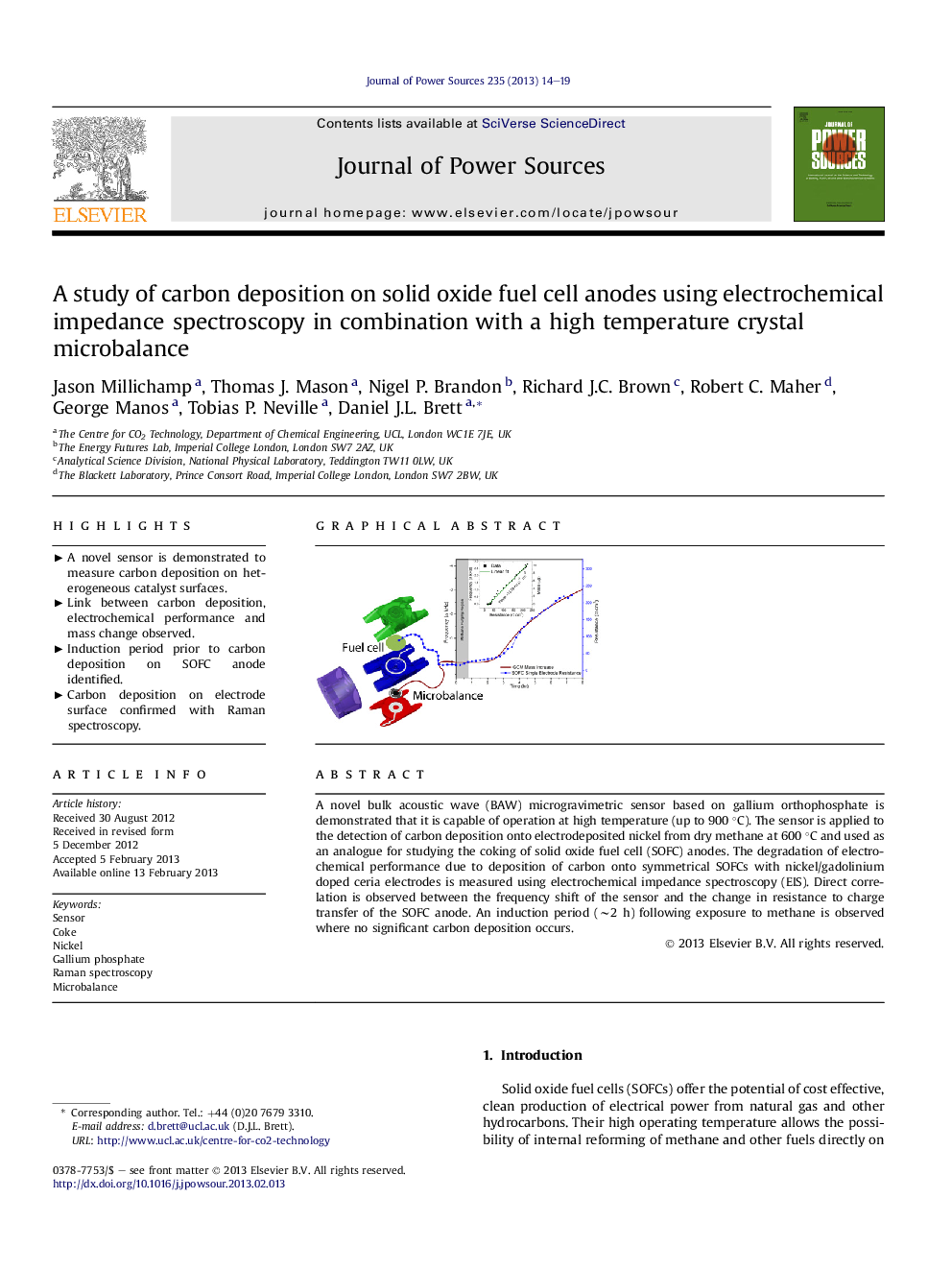| Article ID | Journal | Published Year | Pages | File Type |
|---|---|---|---|---|
| 1287836 | Journal of Power Sources | 2013 | 6 Pages |
A novel bulk acoustic wave (BAW) microgravimetric sensor based on gallium orthophosphate is demonstrated that it is capable of operation at high temperature (up to 900 °C). The sensor is applied to the detection of carbon deposition onto electrodeposited nickel from dry methane at 600 °C and used as an analogue for studying the coking of solid oxide fuel cell (SOFC) anodes. The degradation of electrochemical performance due to deposition of carbon onto symmetrical SOFCs with nickel/gadolinium doped ceria electrodes is measured using electrochemical impedance spectroscopy (EIS). Direct correlation is observed between the frequency shift of the sensor and the change in resistance to charge transfer of the SOFC anode. An induction period (∼2 h) following exposure to methane is observed where no significant carbon deposition occurs.
Graphical abstractFigure optionsDownload full-size imageDownload as PowerPoint slideHighlights► A novel sensor is demonstrated to measure carbon deposition on heterogeneous catalyst surfaces. ► Link between carbon deposition, electrochemical performance and mass change observed. ► Induction period prior to carbon deposition on SOFC anode identified. ► Carbon deposition on electrode surface confirmed with Raman spectroscopy.
